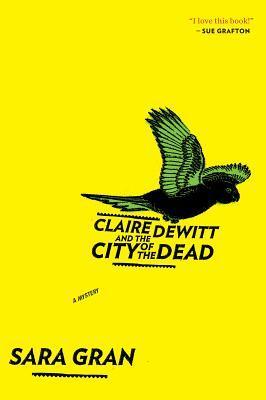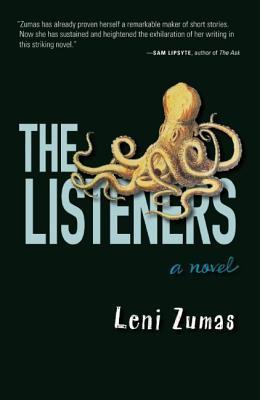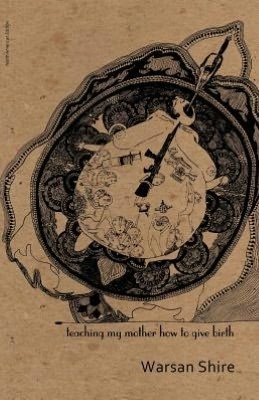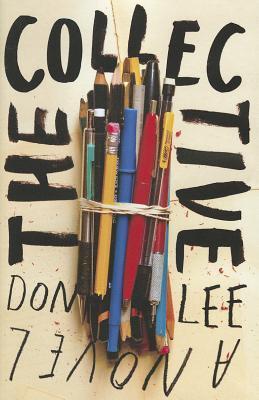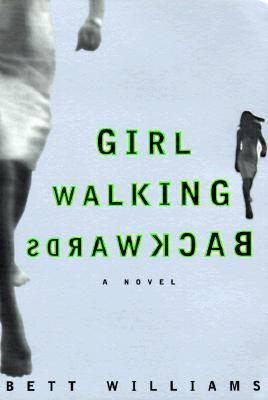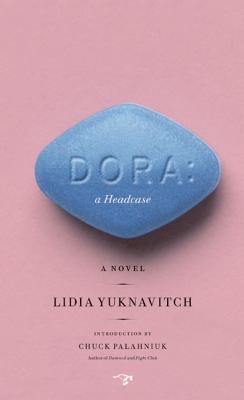Sarah McCarry's Blog, page 12
November 18, 2012
A Few Good Men
I can't watch violent movies. Which is funny, because last night I went to see the new James Bond movie, knowing more or less what would happen. I do like explosions, and espionage, and I thought maybe I would be fine.
In the first part of the James Bond movie, the pretty lady dies. You see it coming. The pretty lady is up against a rock, her hands bound behind her. Some bad men have roughed her up. There is a spot of blood artfully dabbed at the corner of her beautiful, swollen mouth. Her eyes are mutely pleading, her hair disheveled. You do not see the death of the pretty lady; there is a battle, and afterward the camera cuts to her, bent in half, her long hair dangling. James Bond has already fucked the pretty lady. The camera cuts away and the pretty lady is done with. Afterward, James Bond has many adventures; he runs about, and chases more bad men, and there are thrilling shootouts, and a spectacular scene toward the end that I don't want to ruin for you but involves a large vehicle crashing into a large environment followed by an enormous explosion, and it is all quite exciting, if you like that sort of thing, which I do.
I do not mean this as a critique of James Bond. James Bond is rather silly, honestly. I think most people can agree on that. I mean only that as soon as the pretty lady died I had a reaction so visceral that I began to shake in my seat. My friend, who knew what was happening, leaned over and asked me if I needed to leave. We were there with some people I didn't know very well and I did not particularly want to humiliate myself by making all of us give up sixty dollars' worth of movie tickets because, what, Sarah freaks out over a three-minute scene in which a minor character gets shot, so I shook my head. For the rest of the movie I cried intermittently and when the movie ended I locked myself in the bathroom and cried some more and I couldn't get my hands to stop shaking and after the movie I cried all the way to a bar and got staggeringly drunk. I feel better today, right now, except for a little bit of a hangover, but I cannot scrub from my mind the image of the pretty lady, bent in half, in high heels, in her red dress, the pretty lady with blood at the corner of her mouth.
I worked in domestic violence shelters for a decade, which is a thing I don't often tell people anymore--that was a different me, a different life. I'm sure that has something to do with it. For a while I couldn't even watch someone slap a woman onscreen without falling apart. The things I heard in shelter, the stories I could tell you. I won't, because they're not my stories, but I worked with women who had things so horrifying happen to them at the hands of people they loved that their stories altered the way I look at the world. After the James Bond movie, in the bar, I was trying to explain better to my friend what had happened to me when the pretty lady died, that when the pretty lady dies badly onscreen I see every bad thing that has ever happened to me or any woman I have cared about. My friends. The women I worked with. All of us.
This is not normal, I understand that. Frankly, it is exhausting. I would like to be able to go to action movies without scrolling through Christian movie review sites--which describe explicitly the kinds of violence depicted--to determine whether I will be able to handle them. (The death of the pretty lady did not warrant a mention in the review I looked at.) We are supposed to be able to separate the pretty lady from ourselves. I am not stupid; I do not think James Bond movies make men into rapists. It is, for me personally, somewhat devastating that highly sexualized violence against women is a routine plot device so standard that the pretty lady's death is staged simply as the setup for a joke about whiskey, but I do not think that is anything more than a symptom of a larger problem.
And men who rape, who assault, do not look like Javier Bardem, striding about campily in a white suit, clearly identifiable, ordering the deaths of innocents. They look like you, like your friends. They look like people you know. They are sometimes bad people, but often they are not; they are simply people who have the entire juggernaut of a culture behind them, telling them the pretty lady has no voice. The pretty lady wants it. The pretty lady is there for you, her eyes wide, and how fucking sexy is her terror. For me, watching that violence re-enacted onscreen throws me so far into my body that I can't get out again.
For so many of us the lines are not always clear between the people who love us and the people who hurt us. Most of us can say that if someone hits you, that's pretty shitty; that's an identifiable thing, a bad thing. When I worked in shelters even women who had had that kind of violence so inculcated into them that they would explain to me how they actually deserved it understood that it was not normal, to hit another human being. It is a thing that must be justified, explained. But there is a lot that can happen up to that point, the point of physical assault, that is not so easy to define. How many of us have traded some measure of safety for the feeling that we are loved? How many of us have seen people we thought we were safe with transformed into people willing to do us harm?
Years ago I went to see The Dark Knight in the movie theater. I am sure you can guess it did not go well for me. We are meant to see that the Joker is a bad man, and we are shown it with repeated emphasis. There was a little boy sitting a few seats down from me who was not doing very well, either. We both began to cry. He asked his mother to leave. "I paid for your goddamn ticket," she hissed, "you're not leaving, watch the goddamn movie." The Joker goes to a party, gets hold of the pretty lady, holds a knife to her face and threatens to cut her smile wider, and I lost my shit. I don't even remember leaving the theater. Outside, I had to sit on the dirty carpet, lean up against the wall, while my friend held me and I sobbed. When I looked up the little boy from the theater was sitting near me, also crying; his mom, disgusted, was nearby on her cell phone. We looked at each other, me and him. "It's okay," I said to him, "it's okay." I wanted more than anything to take him into my arms, this stranger's child, and hold him while he cried, to tell him to always remember what it felt like, the pain of watching another human being suffer. Grow up and be kind, I wanted to say to him. "It's okay," I said instead. "It's always okay to be sad."
November 14, 2012
More Satisfying Job Applications
Gawker Media, publisher of some of the web's best-loved brands and communities, is seeking an experienced executive assistant in our New York office. [...] To apply, please send a note to opsjobs AT gawker DOT com (no attachments!) with a resume in plain text and a short cover note that tells us why you're perfect for this job as well as how you would handle these hypothetical situations:
You booked a flight for an employee to travel to our Budapest office, but they missed their international connecting flight through Paris. They text you for help.
"Alas!" cries the Executive Assistant, stretching languidly at her desk, "I seem to have dropped my telephone in the toilet. Perhaps next time we ought to send an employee capable of accomplishing tasks as basic as catching an international connecting flight, such as the Executive Assistant." The Executive Assistant rummages about in her drawer until she finds a packet of Snackimals. "Cookie, anyone?" she asks politely. "Oh never mind, I don't feel like sharing."
Someone shows up for an appointment with an executive, but you can't find them or reach them on their cell phone.
The Executive Assistant has stepped into a Twilight Zone of unclear referents! How astonishing, to think that someone can show up and yet also remain unfindable! The Executive Assistant leaps to her feet. "It shall be the premise of my new paranormal romantic young adults novel!" she shouts. "Thank god, I can shuffle right off this administrative shitshow for fame and fortune at last!"
Office happy hour starts in ten minutes and the wine was never delivered.
Well, then you go to a fucking bar like a fucking adult. Obviously.
Original posting is here, should you like to try your hand at it. Good luck!
November 7, 2012
Guillotine Series #2: Troubleshooting Silence in Arizona
QUITE EXCITING: THAT WHOLE ELECTION, right. But also! you can now preorder the second in the Guillotine series, Troubleshooting Silence in Arizona; plus an extremely limited special edition with a letterpress broadside. FANCY. Ships the first week of December, 2012.
GUILLOTINE #2 SPECIAL EDITION
A copy of Troubleshooting Silence in Arizona and a signed and numbered broadside print of a previously unpublished poem by Bojan Louis. Three-color, letterpress, 8.5 x 11", printed on archival paper in an edition of thirty.
GUILLOTINE #2: Bojan Louis. Troubleshooting Silence in Arizona.
"Colonization has a bad taste, a reason for ethnic solidarity. Because, well, not all us brown-skin motherfuckers were annihilated": Meditations on book banning in occupied territory. 16 pp., 4.5 x 6.5", letterpress cover, handbound in an edition of 200.
BOJAN LOUIS is a member of the Navajo Nation — Naakaii Dine’é; Ashiihí; Ta’neezahnii; Bilgáana. His poems have appeared in The Kenyon Review, Platte Valley Review, and Hinchas de Poesía; fiction in Alaska Quarterly Review. He has been a resident at The MacDowell Colony.
Preorder // Use discount code BREWERDISPLEASES at checkout for $2 off each chapbook ordered before November 30
November 4, 2012
I Am Fine And I Love You
Thank you so much to everyone who has emailed me over the last week; it is, as always, so magical to me to know that there are people all over the internet who are now my friends because of this blog. I am fine, incredibly lucky, and totally unscathed.
But, as you know, the same is not true for the city that I love so much. It has been incredible to watch people come together in the wake of this storm, to see neighbors support one another, to have complete strangers ask me in line for the ATM if I am okay, if my family is okay, if my house is okay. A lot of people here are not okay. A lot of people have lost so much, and a lot of people still do not have power or water or homes, and another storm is coming.
There are so many ways you can help. Here are a few of them.
Brooklyn City Councilperson Brad Lander (among many, many other people) has been regularly tweeting volunteer and donation needs, as has Occupy Sandy. You can support firefighters who are helping Sandy victims, even though many of them have lost their own homes, here. Brokelyn has been posting volunteer and donation opportunities, as has New York Cares. These are just a few places to start. The tremendous Jenny Zhang has some more links over at Rookie, plus a reminder that this storm has disproportionately affected already-struggling communities in New York and that hundreds of people in the Caribbean have lost their lives and homes as well.
I am more grateful than I have ever been in my life to be safe, to have a home, to have heat and electricity and enough to eat and enough money to live on, and to know that the people I love are safe too. There are so many people for whom none of those things are true and the last week has brought that home and the days to come will bring it home over and over again. I have been trying all this week to think of the exact thing to say, the thing that will explain to you how thankful I am and how much I love this city and how much I love the people that I love, but this time I don't have the right words. Please be kind to one another and please ask your neighbors if they are okay, no matter where you are. And if you have lost your home, or people you love, if you had nothing to begin with and now you have less, know that there are strangers all around you, holding you in their hearts, hoping against hope that the love they have for you will make a difference. I know it is not enough. I'm sorry.
October 24, 2012
Some Books I Have Been Reading Lately
Claire DeWitt and the City of the Dead
288pp. Mariner. 9780547747613I've long been a fan of Sara Gran's edgy noir, but Claire Dewitt marks a whole new level of sophistication and craftsmanship; it's the book where you realize someone whose work you already loved has totally figured out how to make a book that will blow your mind. A perfectly-plotted and occasionally surreal homage to the great feminist detective fiction of the 80s and early 90s, Claire Dewitt and the City of the Dead is also totally fresh and totally smart. Claire, the titular detective, is like Kinsey Millhone channeled by Hunter S. Thompson: a super-cool and super-tough PI whose methods range from unerring detective instincts to getting loaded on PCP with her main suspect. Like most great detective fiction, the setting is as much a character as the characters themselves, and Sara Gran's post-Katrina New Orleans is no exception. Sad and brilliant and wildly original.Leni Zumas
The Listeners
350pp. Tin House. 9781935639299Leni Zumas is for real doing things with language that you did not know were possible to do with language. This is the kind of book that makes you want to throw out everything you have been working on and start all over because if you can't do it this good why even bother. It's a book about punk and love and running your life into the ground and fucking up pretty irredeemably and being the kind of person who is hard for other people to like, and it's also compulsively readable and every sentence is so perfect it makes you sort of question what you have been doing with your life until now. Warsan Shire
Teaching My Mother How To Give Birth
38pp. Flipped Eye Publishing. 9781905233298It's easy to say these are poems about displacement and war and exile and loss, and they are, but they are also poems about what it means to be human and complicated and love people and look for home. What it means to experience violence and survive it, what it means to be alive. The language is so beautiful I have been agonizing for weeks over what I can say that will do this book justice (nothing, just read it). Transcendental, devastating, humbling. These poems are so true they make a new meaning for truth. Don Lee
The Collective
314pp. WW Norton. 9780393083217Don Lee takes the classic college novel and turns it on its head in one of the best books about art, writing, race, ethnicity, and friendship I've read in a long time. The Collective is the story of Jessica, Eric, and Joshua, three aspiring geniuses who are drawn together in college--and sometimes pushed apart--by Joshua's magnetism and brio (and more than occasional obnoxiousness). The novel tracks them after their college years as each of them deals in different ways with questions of race, identity, love, and what it means to be a working artist. Smart, often very funny, and about as insightful as they come.Bett Williams
Girl Walking Backwards
264pp. St. Martin's Griffin. 9780312194567I first read Girl Walking Backwards when it came out in 1998, and reread it recently to see if it was as good as I remembered. It's better. Skye's a Southern California teenager, having recreational non-sex with her "boyfriend" Riley while falling in love with her troubled, self-mutilating, operatically goth friend Jessica. Her mom is a New Age freak whose penchant for crystals can't hide the fact that she's crossing the line into actual insanity, and her dad's checked out to LA. Skye's deadpan, relentlessly funny voice takes this anti-coming-of-age novel to the level of greatness. A little like if The Catcher in the Rye was a wicked punk-rock barrel of genius narrated by someone you actually cared about.Francesca Lia Block
The Elementals
272pp. St. Martin's Press. 9781250005496OH YOU GUYS. IT'S FLB. I would read this if it was godawful and written on napkins, or something, but it is in fact far and away the best thing Francesca Lia Block has written in years and years and years. Creepy and sad and lovely and goth; it's like if The Secret History had a baby with Pamela Dean's Tam Lin. The FLB of The Elementals seems older and sadder and wiser than the FLB of Weetzie Bat; I mean, obviously, since it's been over twenty years (!!!!) since Weetzie was published, but in addition to her always-gorgeous language and imagery, The Elementals is rooted in a serious, honest examination of love and loss. I loved this from start to finish.
October 20, 2012
I Could Live in Hope
1.
Jenny's house was beige: beige walls, beige carpet, beige paintings hung over the beige furniture. Her parents were doctors and never home and so it was the best house to go to; our own beige nest, free of the pernicious influences of adults. Tabitha and I would have sacrificed piglets for that kind of freedom but Jenny was the kind of girl who, in the absence of parents, parented herself with ruthless, totalitarian authority: excelling in everything, joining all possible teams, winning every track meet, cremating her ski-team opponents, going to bed at eleven. It made her nervous when we brought over cigarettes or weed or seniors, pillaged the cabinet over the stove where her parents kept a dusty bottle of Grand Marnier, cajoled her into driving us to all-ages shows we weren't supposed to go to.
I loved Jenny, with all my heart, loved her sober, worried face, her laugh, whatever it was in her that pushed her to ever greater lengths of achievement; and I loved Tabitha, lanky and fickle, Tabitha with her model's face and drive that matched Jenny's. They fought each other ruthlessly for four-point GPAs, track trophies, perfect scores on calculus tests. They looked nothing alike but people mistook them for sisters. Both of them lean as greyhounds, long brown hair falling into their light eyes: Tabitha's the icy blue of the sky at the edge of the horizon, Jenny's a silvery grey-green that darkened to smoke when she was sad.
Which was, for all three of us, often. What I remember more than anything about that time in my life, more than anger, more than hope, more than music, more even than the two of them, is the sadness I did not understand then I would be learning to share a body with for the rest of my life. I wasn't in the running for whatever it was Jenny and Tabitha were competing for. They were already skinnier than I was, smarter than I was, more driven than I was. They wanted Ivy League, I wanted nothing more than a way out. The second we graduated I was gone, as far as I could get myself. We stayed in touch for a while but whatever it was that had tethered them to me dissolved. There was nothing dramatic that set in motion our slide apart from one another, just the gradual dissolution of what had already been coming apart. I don't remember the last time I talked to either of them. I hear news of them, every now and then. They are doing good things with their lives, as all of us expected they would. What they expected of me, I couldn't even tell you.
What I expected of myself, I've done.
2.
We used to lie on Jenny's floor and listen to Low, the year I Could Live in Hope came out. We saw them, the three of us, our freshman or sophomore year. We sat in the velvet-covered seats at the Moore, wearing what we thought grown-ups wore, people who went to concerts all the time, and worked in record stores, and had sex. Mimi Parker's incomparable voice filled the entire theater. The pain is easy / Too many words, too many words. I had no name for the heartbreak I carried in my chest, a sorrow so constant it was physical, like a bodily organ pieced together out of barbed wire and broken glass, but that album made a space for it, made me feel, if not less alone, a little less lonely. We would lie on Jenny's floor, my head pillowed on her bony chest, her arm wrapped around my shoulders, and listen to it over and over again. We all want, we all yearn. I can't listen to it now without thinking of them; I couldn't listen to it at all for years.
I loved them both so much I couldn't understand why the love we had for each other couldn't cross the ways in which we were separate; it's a long time of learning lessons, before you learn the one about love not being enough to keep together what's coming asunder. I miss them still in a way that's hard to place. Not nostalgia, exactly, but not a real thing, either. I do not ever, ever want to be a teenager again, but those years are still with me, still woven into the fabric of my days. A drop of dye in a bucket of water: it doesn't take much to shift the color to something new.
3.
There's no neat ending. I thought of Jenny's house because I was waiting for the Q train one night a while ago, listening to I Could Live in Hope and crying; one of those nights where you catalog every time you've ever hurt someone you love, where you think about your own life and how it will never be anything other than messy and undone, uncertain. I am not a sixteen-year-old girl who wishes for death anymore, but those nights still line up sometimes, strung between the good ones. I can still feel the texture of Jenny's carpet on my cheek, the neat shelf of her CDs lined up next to her biology textbooks, her SAT prep manuals, her Sassy magazines arranged in chronological order. Still remember that show at the Moore. Still remember the three of us, rapt and breathless, sitting together in the darkened theater, waiting for the music to start.
October 6, 2012
Dora: A Headcase
Dora: A Headcase
237pp. Hawthorne Books. 9780983477570
Lidia Yuknavitch is someone who takes huge and necessary risks with her work and who pushes writing to the edges of the places writing can go, who makes writing into a fist and a body and a blood trail, and this is no less true of her fiction than it is of the other work of hers I have read. Dora is (I accidentally typed "id" there, very Freudian) messy and scary and hilarious and real and it is for the girl in many of us who is just waiting for her chance to wreak motherfucking havoc on this shitshow of a world that tells us our bodies and our lives and our stories are not worth defending or believing or telling.
Dora is, in a sense, a revisionist history of a history of revision: the revision of women's stories by that crabby old coot Sigmund Freud, whose legacy yet terrorizes legions of English graduate students and permeates the dominant culture so thoroughly his influence is almost indistinguishable from the kinds of things we call common sense--his work, as the poet W.H. Auden wrote, has become a "whole climate of opinion." Yuknavitch's Ida is a history-wrecking version of Freud's favorite hysteric, Ida Bauer, the de-heroined focus of his famous case study in which he renamed her Dora. Diagnosed by Freud as suffering "hysteria," that most female of complaints, the real-life Ida's most evident symptom was an inability to speak--shit like that, you don't have to make up metaphors. Yuknavitch's Ida is, in her turn, a foul-mouthed and funny hellion getting up to all kinds of trouble in modern-day Seattle: a pill-popping, Doc-wearing, obsessive documentarian, who's delivered to her therapist "Siggy" every Thursday by her father "so he can drive away from what he's made." Ida has no trouble speaking, except in the presence of love: when she's around Obsidian, the object of her affections, she goes silent altogether. For all her madcap adventures, she, like the best of us, is undone by her own wants.
And I should say up front that, when it comes to Lidia Yuknavitch, I am wildly biased: I am publishing her myself, this month, in conversation with Vanessa Veselka, which is what I have spent the bulk of the last few weeks working on--seventeen hours and twelve hundred passes on a flatbed press with no handle; four hours trimming guts on, appropriately enough, a guillotine; six hours handbinding with a number of very generous friends willing to work for cheap beer and Newman-O's; six hours stuffing envelopes. My wrists are one big ache and I can't make a fist, even now as I'm typing this. (If I had to make a fist. In defense of either Ida, or of myself, or just because I picked a fight.) I haven't cleaned my apartment in I don't want to think about how long and I haven't done my laundry in longer. I wrote the first sentence of this review three months ago and left it, sad and alone, at the top of the page until now. Grownup much? Not so. And yet. I know a lot of women like me, and we are all making it work somehow. I saw a lot of myself in Ida: wild, messy, a mess, dumb with love--literally, in her case; but of course who was able, when they were fourteen, fifteen, twenty-five, thirty-three, to say anything close to the things they wanted to say. I am not really that interested in being a grownup but I think a lot about which pieces of my own crazy-reckless-combat-booted Ida-self are doing me in and which are keeping me whole. It's usually a little of both. There's the rub, I guess.
There's a scene midway through the book where Ida revenges herself upon Siggy in a particularly Freudian way, and it involves--let's say it involves a trip to the hospital, and a very literal phallus, and it is really, really fucking funny. I was reading Dora at a bar in my neighborhood, notable more for the value of its happy hour than the appeal of its clientele, when a gentleman sidled up to me and asked what I was reading. Because, obviously, why else would a lady be by herself, at a bar, at five in the afternoon, reading a fucking book, than out of the desperate hope that she might meet a boon companion with whom to while away the precious free hours of her evening. There was something almost delicious about reading a riff on castration while being hit on by some douche with a craft beer and bad facial hair. "I'm reading about a girl who cuts off a guy's dick," I said--which is not at all a remotely accurate description of the scene, Siggy emerges intact in all areas but that of his dignity--but it worked. He left me right alone after that. Ida, I think, would be proud.
I don't know how to be a grownup--or a critic, if that wasn't already obvious--but I know what I love, and I love people who are writing about edges, from the edges, and I love people who are writing love stories for the girls we used to be, the girls who live in us still. We is a dangerous word, I know, and I don't mean all of us are the same, that our stories are the same or our skins or bodies or histories. I know that. There are a lot of different ways to be a girl. But some of us, I think, can recognize ourselves so well in certain kinds of stories about certain kinds of girls, girls let loose and made furious, girls who barrel forward through an ocean of fucking up, who are too big for the options the world has given them. Us. Stories we need more of, more kinds of, more room for, because they don't get told enough. Dora's a story for you, then, if you're that girl; not the only one, for sure, but a great one. "What we need," Ida says, "is a break out. Out of our lives, out of Seattle, out of the dumb script of girl." That's as true for me now as it was for me then; there's no fewer people, for all the years between me and fifteen, trying to tell me how a lady should be in the world, and god help you if you are trying to be female and an artist at the same time.
Sometimes it's enough to find in a book like this a reminder that I am not alone, and if you are anything like me, neither are you. Idas a little, both of us, kicking our way through the walls.
September 24, 2012
A Conversation with Cara Hoffman
Cara Hoffman is the author of So Much Pretty, a novel about the disappearance of a young woman in a sleepy small town in upstate New York. The townspeople of Haeden insist a stranger is responsible for her abduction, but journalist Stacy Flynn suspects otherwise, and she refuses to keep her speculations to herself. Told from the perspective of multiple characters, So Much Pretty is an insightful and beautifully-written meditation on violence against women disguised as a sharply-plotted thriller.
As someone who also grew up in a small town, I found myself recognizing many of the characters and the setting in So Much Pretty. (I always think of that Sherlock Holmes story where Holmes talks about how rural areas are the site of so many more terrifying crimes than urban places: "It is my belief, Watson, founded upon my experience, that the lowest and vilest alleys in London do not present a more dreadful record of sin than does the smiling and beautiful countryside.") Was setting the book in upstate New York something that came out of your background and your research, or do were you intentionally trying to write against the very American narrative of small towns as intrinsically safe, community-based, and "family-friendly" places? How do you think the book would have been different if you'd set it in a city?
I love that Arthur Conan Doyle quote. The answer to your questions is yes. I was intentionally writing a pastoral, one that would be more accurate than the literature with which we are inundated. The sleepy little town is not what we think it is, and never has been--especially for women. The book also came out of work and research I had done as a reporter and is about a place I know intimately.There's so much nonsense written about small town life and getting back to the land it's almost unbearable. The values in these places often embody the very worst of humanity; provincialism and monoculture and ignorance. There is a particular kind of misogyny that plays out as wholesome in these places and it's beyond contempt. So Much Pretty could not have been set in a city.
I think it's enormously difficult, even for writers whose work and politics are explicitly feminist, to write about sexualized violence against women without falling into the trap of sensationalizing it--as you say, "it becomes something that drives our aesthetics, becomes entertaining." How did you avoid doing that in So Much Pretty ?
It's not easy. We are so acclimated to being entertained by stories and images of dead or brutalized women. Whole genres now exist that actually focus on forensically examining--literally taking apart--women who have been sexually assaulted and murdered. It's very hard to get away from objectification. Even in death a woman's body is made sexual, objectified, must submit to meticulous picking apart. I think the obvious way to avoid this kind of necrophilic misogyny that dominates our culture is simply to have realistic portrayals of men and women. To focus on the perpetrator instead of the victim. And to reveal the banality of violence against women. The common everyday brutality that is anything but unusual, scandalous or sexy. The main way I avoided making Wendy White's death sensationalistic is through events that happen later in the novel involving other men and women.
How do you balance hope and anger in your everyday life?
That's the million-dollar question. I don't know that I do. I read Celine. I swim a lot. Swimming a mile a day helps. Any time I spend with my kid sets things straight. He's a very funny guy and he's a composer. I listen to his music and learn interesting things about theory from him and that certainly helps mitigate the darkness. I teach in the Bronx a couple days a week, and being up there with my students makes me feel more at home in the world. I don't know if these things make me hopeful really. But they're necessary.
Can you talk about what you're working on next?
I just finished a new novel, called Be Safe I Love You, due out in 2013. It's about a woman coming home from a tour of duty in Iraq and adjusting to life after the war. It's set in Watertown, New York. It's about Irish working-class families upstate, sibling relationships, climate change, and holy minimalism.
Some books you've read lately and loved?
Cynthia Carr's biography of Daid Wojnarowicz, Fire in the Belly, is excellent. I love Elizabeth Hand's writing. Daniel Woodrell's novels and short stories should be required reading, as should Gerard Donovan's Schopenhauer's Telescope.
September 6, 2012
ANNOUNCING: GUILLOTINE
AT LONG LAST my TOP SECRET SPECIAL PROJECT is coming to fruition, and I can announce it here officially! Beginning in October, I'll be semi-regularly publishing GUILLOTINE, an ongoing series of handbound letterpress-printed chapbooks focusing on revolutionary nonfiction. GUILLOTINE will start off with the face-fucking-melting team of Lidia Yuknavitch and Vanessa Veselka. Every one of these little books will be printed and sewn together by me with love and the willingness to get violent in service of the people's revolution. You know you want one. Preorder Lidia & Vanessa here; preorder Bojan soon.
OCTOBER 2012: GUILLOTINE SERIES #1: Vanessa Veselka and Lidia Yuknavitch. Violence.
Preorder // Use discount code PUSSYRIOT at checkout for $2 off each chapbook ordered before October 6.
"The feminine forms we have inherited in terms of sanctified literature pretty much make me want to punch someone in the face": An expansion of Vanessa Veselka and Lidia Yuknavitch's conversation on women, writing, and violence, which originally appeared online at the Believer blog. Smart, funny, fearless, and life-changing, this dialogue covers hope, Freud, castration, knitting, and a wide variety of bodily functions.
LIDIA YUKNAVITCH is the author of the novel DORA: A Headcase and the memoir Chronology of Water. Her work has appeared in Ms., The Iowa Review, Exquisite Corpse, Another Chicago Magazine, Fiction International, Zyzzyva, and elsewhere. Her book Real to Reel was a finalist for the Oregon Book Award and she is the recipient of awards and fellowships from Poets and Writers and Literary Arts, Inc. Her work appears in the anthologies Life As We Show It (City Lights), Forms At War (FC2), and Wreckage of Reason (Spuytin Duyvil). She teaches writing, literature, film, and Women's Studies in Oregon. VANESSA VESELKA (Portland, OR) has been at various times a teenage runaway, a union organizer, a student of paleontology, and a mother. Her work appears in The Atlantic, Tin House, Zyzzyva, the FSG anthology Bitch: Feminist Response to Pop Culture, and Maximum Rock ’n’ Roll. Her debut novel, Zazen, is the 2012 PEN / Bingham prize winner for fiction.
DECEMBER 2012: GUILLOTINE SERIES #2: Bojan Louis. Troubleshooting Silence in Arizona.
"Colonization has a bad taste, a reason for ethnic solidarity. Because, well, not all us brown-skin motherfuckers were annihilated": Meditations on book banning in occupied territory.
BOJAN LOUIS is a member of the Navajo Nation — Naakaii Dine’é; Ashiihí; Ta’neezahnii; Bilgáana. His poems have appeared in The Kenyon Review, Platte Valley Review, and Hinchas de Poesía; fiction in Alaska Quarterly Review. He has been a resident at The MacDowell Colony.
Guillotine is a series of erratically-published chapbooks focusing on revolutionary nonfiction.
Sarah McCarry's Blog
- Sarah McCarry's profile
- 156 followers



